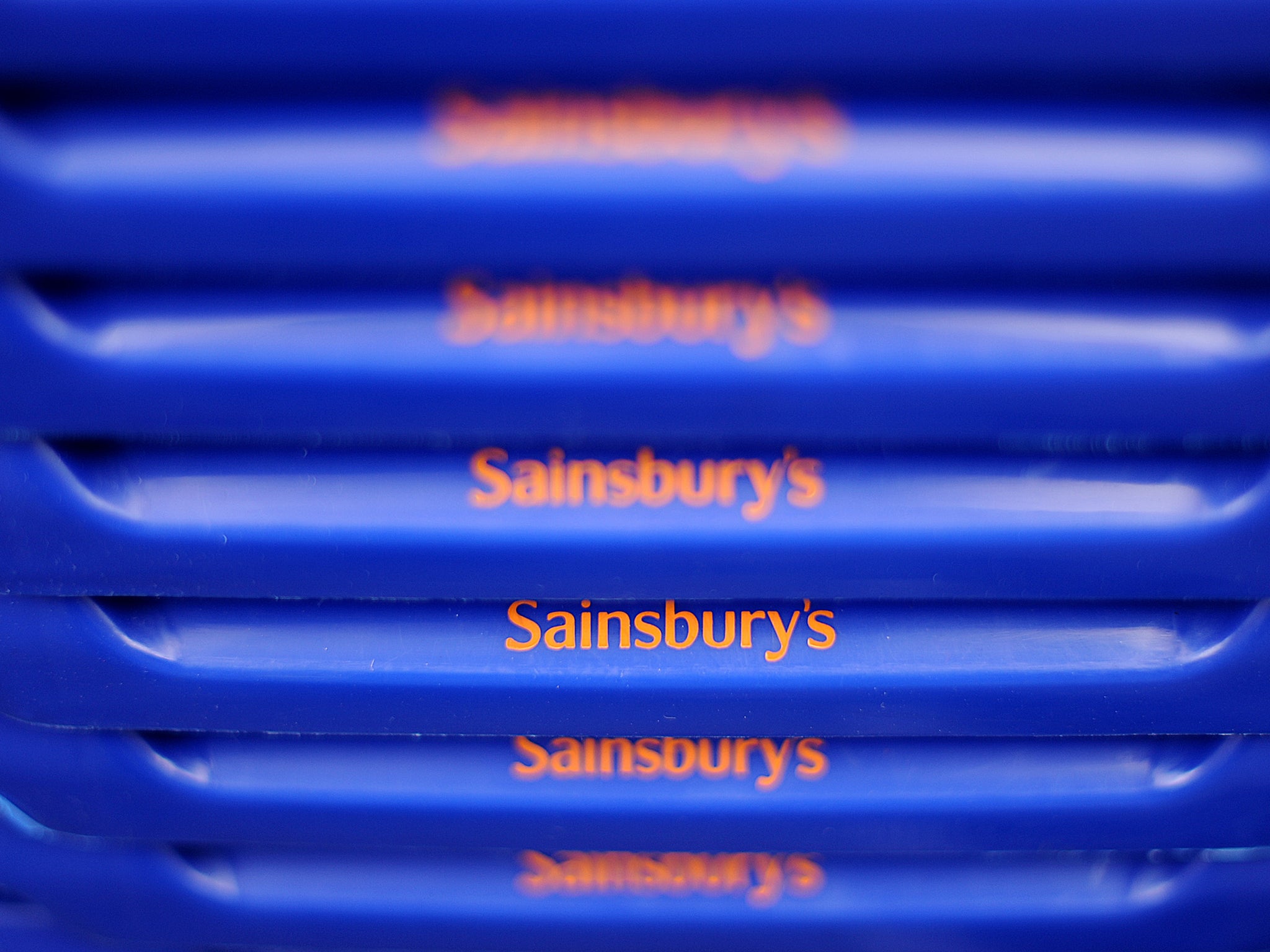Jim Armitage: Time for Sainsbury's to make a bolder move or lose investors
Surely now is the time to rethink the reason for Sainsbury’s existence

Your support helps us to tell the story
From reproductive rights to climate change to Big Tech, The Independent is on the ground when the story is developing. Whether it's investigating the financials of Elon Musk's pro-Trump PAC or producing our latest documentary, 'The A Word', which shines a light on the American women fighting for reproductive rights, we know how important it is to parse out the facts from the messaging.
At such a critical moment in US history, we need reporters on the ground. Your donation allows us to keep sending journalists to speak to both sides of the story.
The Independent is trusted by Americans across the entire political spectrum. And unlike many other quality news outlets, we choose not to lock Americans out of our reporting and analysis with paywalls. We believe quality journalism should be available to everyone, paid for by those who can afford it.
Your support makes all the difference.Outlook Qatar breezily says its economy will be unharmed by the plunging oil price. The oil state’s rulers declared last month that their budget is calculated with extreme conservatism.
At that point the oil price was $65 a barrel. Yesterday, London Brent went below $50: economists are becoming somewhat sceptical about the emirate’s optimism for 2015.
Why raise this issue now? Because, surely, if the crude price falls too far, Qatar may find itself considering selling some of its stakes in investments it has made from its oil and gas over the past few years.
Many of those are in the UK. And towards the top of the list of potential disposals would almost certainly be its 26 per cent stake in Sainsbury’s. Qatar bought into the shares at between 550p and 595p back in 2007 and is now nursing a loss of at least £1.4bn on the investment.
Chickenfeed for a sovereign wealth fund with more than $100bn (£66bn) in the coffers, perhaps. But then, Warren Buffett’s Berkshire Hathaway is no minnow, and it finally cut and ran on Tesco after enduring years of pain.
Staggeringly wealthy the Qatar Investment Authority may be, but its investment managers are not immune from performance measurement. And the performance of Sainsbury has been awful – both in terms of its share price and its revenues. There is little sign of an improvement on the horizon.
It was a measure of how disillusioned the markets have been about Sainsbury that the shares actually rose initially following yesterday’s announcement of falling sales.
That didn’t last long though: for all the positive spin chief executive Mike Coupe put on the company’s situation, the fact is, it remains dire: a near 2 per cent fall in like-for-like sales at a time when costs are rising and discounters are running roughshod over its customer base.
But Sainsbury’s future depends greatly on another rival – not just Lidl and Aldi, but Tesco.
Tesco is in a far more precarious position than Sainsbury, as figures today are likely to show. One supplier contact who’s been doing store visits this week tells me Tesco had “residual stock coming out of its ears”. Never a good sign.
Tesco is under massive pressure to slash prices and has a big enough war chest to do so. Meanwhile, its investors are softening up to the idea of funding a long, aggressive price war. In other words, Tesco boss Dave Lewis has the motivation and power to do serious damage to little Sainsbury’s in the coming months and years.
But only if Sainsbury sticks to its devotion to price cuts. Surely now is the time to rethink the reason for Sainsbury’s existence. Does it really want to keep fighting a battle against the big boys – Tesco and Asda – in taking on Lidl and Aldi for the price-led end of the market?
Or does it want to concentrate its muscle on becoming a quality-led, major player in convenience stores and online?
Given the success Waitrose has been enjoying at the upper end of the market, the latter is the preferable option. The reason Waitrose does so well is that it has no real rival with the same “quality first” message. With Sainsbury’s financial clout, and its dominating position in convenience stores where price is less important than proximity for shoppers, it could trample all over its far smaller rival.
Mr Coupe, who is still opening new big stores, by the way, should start talking to investors – including those Qataris – about scaling down its big stores and stop trying to fight on price.
Join our commenting forum
Join thought-provoking conversations, follow other Independent readers and see their replies
Comments